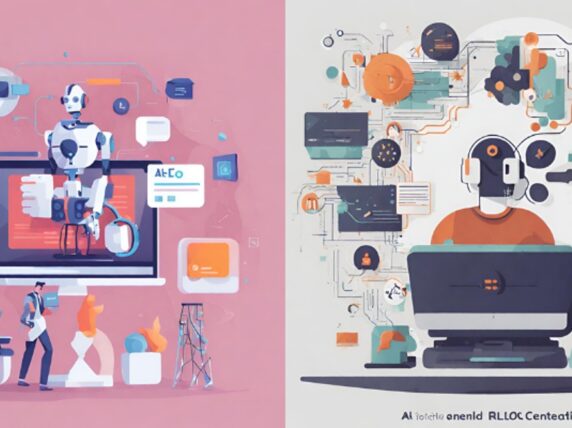Why should NGOs care about the future of work?
It’s been hard to avoid reading about the impact of automation on the future of work in recent months; but research by the Institute of Development Studies (IDS) for our recent Digital Development Summit on the Future of Work revealed that this issue has not yet been given systematic consideration by the development community.
Yet people’s jobs in lower-income countries are at greater risk than those elsewhere. Susceptibility to automation is negatively correlated with gross domestic product (GDP) per capita: the poorer the country, the more susceptible it is. A recent International Labour Organization (ILO) report found that 56 per cent of the total workforce in Cambodia, the Philippines, Vietnam, Thailand and Indonesia are at risk of being displaced by robots, with workers in the garment manufacturing industry being especially vulnerable.
Reflecting broader gender gaps, women will be particularly vulnerable. Men stand to gain one job for every three jobs lost to technology advances, while women are expected to gain one job for every five or more jobs lost.
Given the challenges we face, what might we do about it? Goal 8 in the recently agreed Sustainable Development Goals (SDGs), “full and productive employment and decent work for all”, cannot be achieved without considering the risks and benefits of digital technology.
Trajectories of the future of work are treated as a pre-determined scenario but we at IDS believe that there should be social dialogue amongst all stakeholders, including workers’ representatives, civil society, policy makers and technology companies, to collectively assess the impact of digital technologies on working lives, and envision and determine ways in which these technologies might be used to enable more equitable wealth distribution and sustainable livelihoods.
What can NGOs do?
At our recent Summit we used persona-based foresight exercises to understand how digitisation and automation will be impacting on the lives of different groups of workers – from waste pickers in Lima to taxi drivers in Indonesia – to help us map out what different stakeholders might do. Group discussions yielded a range of suggested responses: shorter working weeks, fair working practice “kite marks” for gig economy platforms, and out of the box suggestions such as a tax on digital transactions to fund universal basic income.
Subscribe to our newsletter
Our weekly email newsletter, Network News, is an indispensable weekly digest of the latest updates on funding, jobs, resources, news and learning opportunities in the international development sector.
Get Network NewsWhat more might international NGOs be doing? It was great to explore this issue further at Bond’s conference session on “Robots to universal incomes: what’s the future of work for developing countries?” alongside Elizabeth Stuart, Joy Green and Andrew Norton. I discussed four roles for NGOs both in terms of their immediate work streams and planning for the future.
- Canary in the coalmine: providing an “early warning function” for the diverse impacts on people’s livelihoods of automation and digitisation.
- Safety net: NGOs are in the front line of adaptation, providing immediate support for the most vulnerable so they can be responsive to the impact of technological disruption on people’s working lives.
- Platform for strategic innovation: NGOs might play a longer-term role in taking away the shocks of job loss and helping people figure out ways they might benefit from the opportunities presented by new technologies through education or training.
- Loudspeaker: global advocacy is needed on this issue as a development challenge. If we’re serious about achieving SDG 8 we need to be looking at the opportunities and threats caused by digitisation and automation.
Category
News & Views



